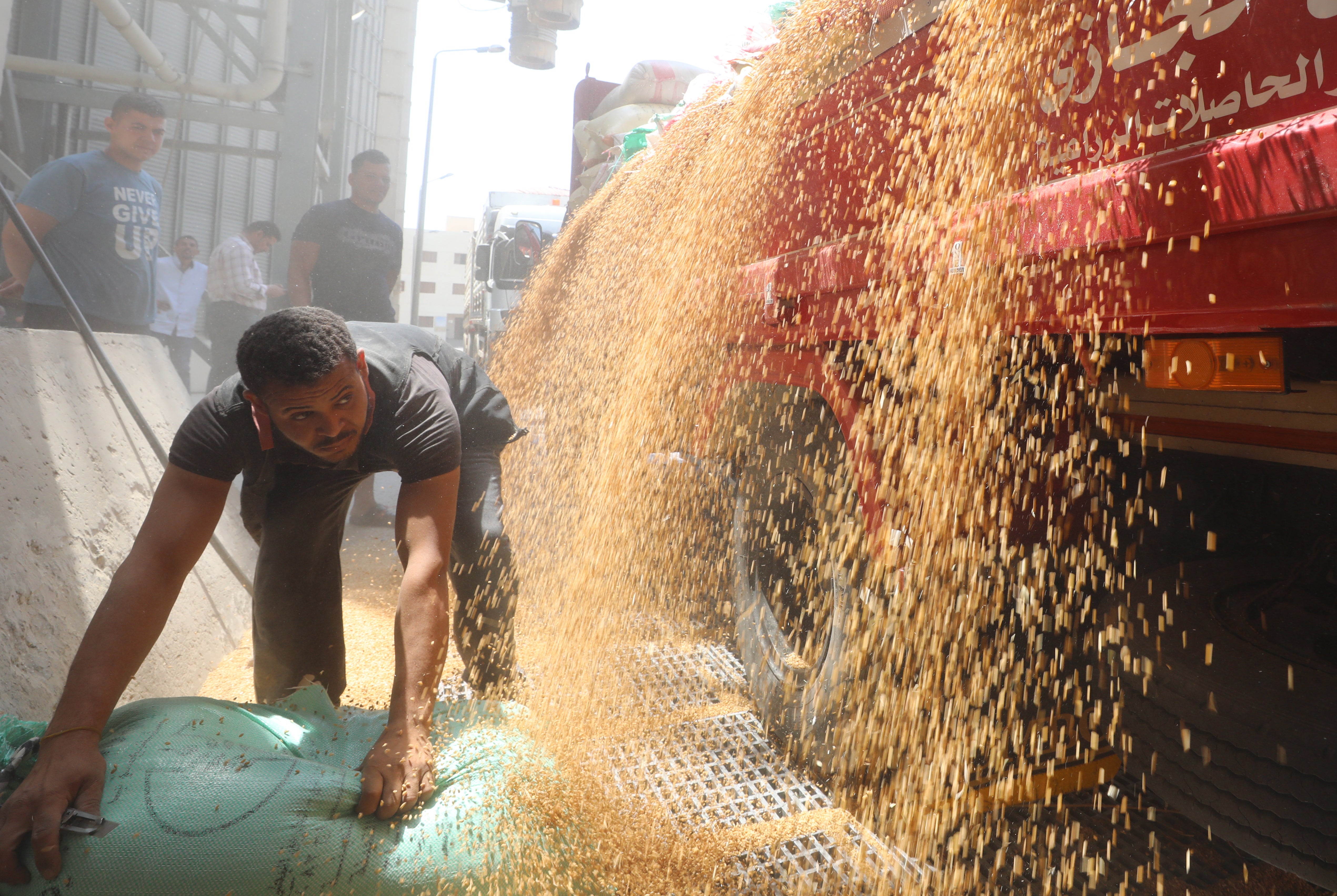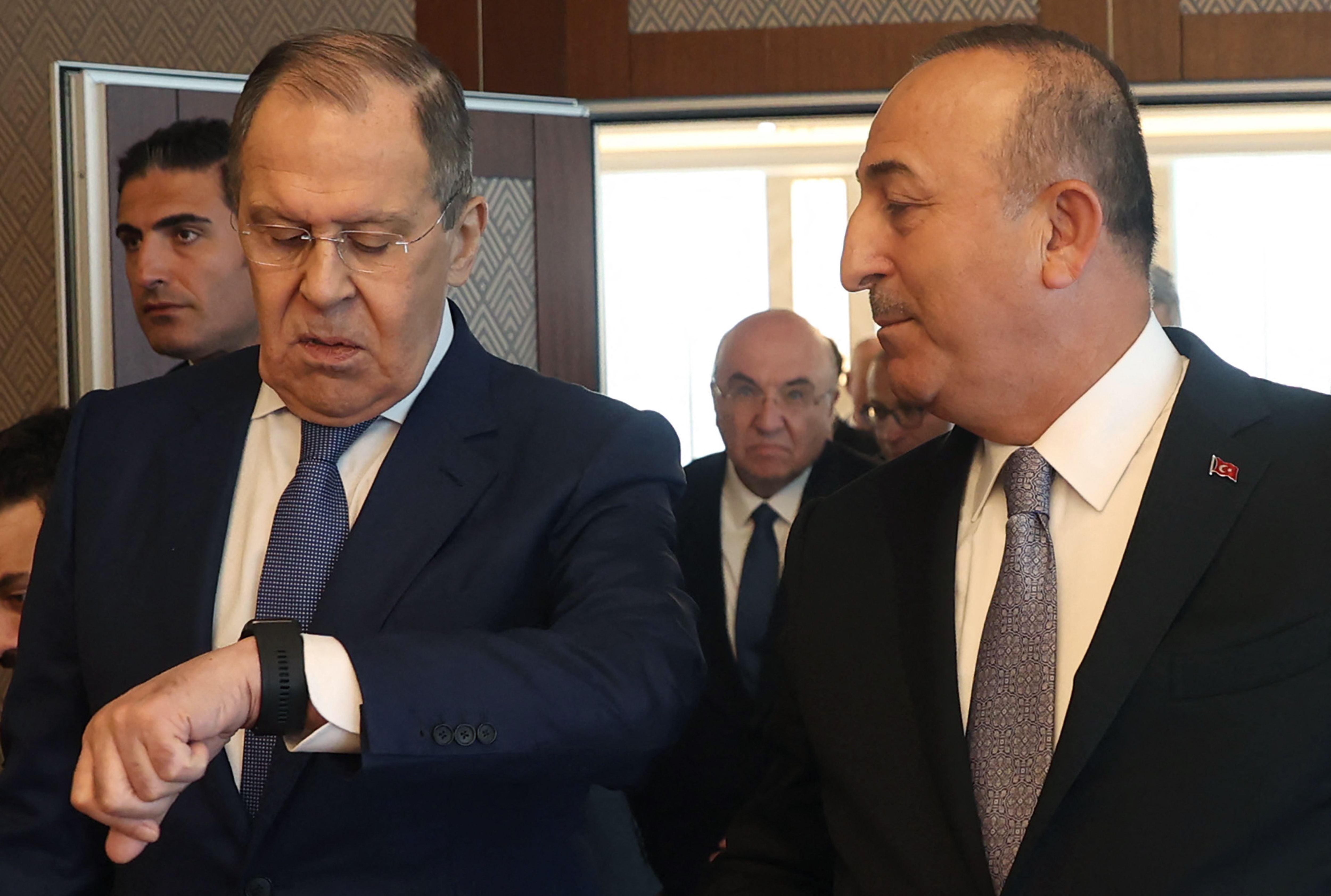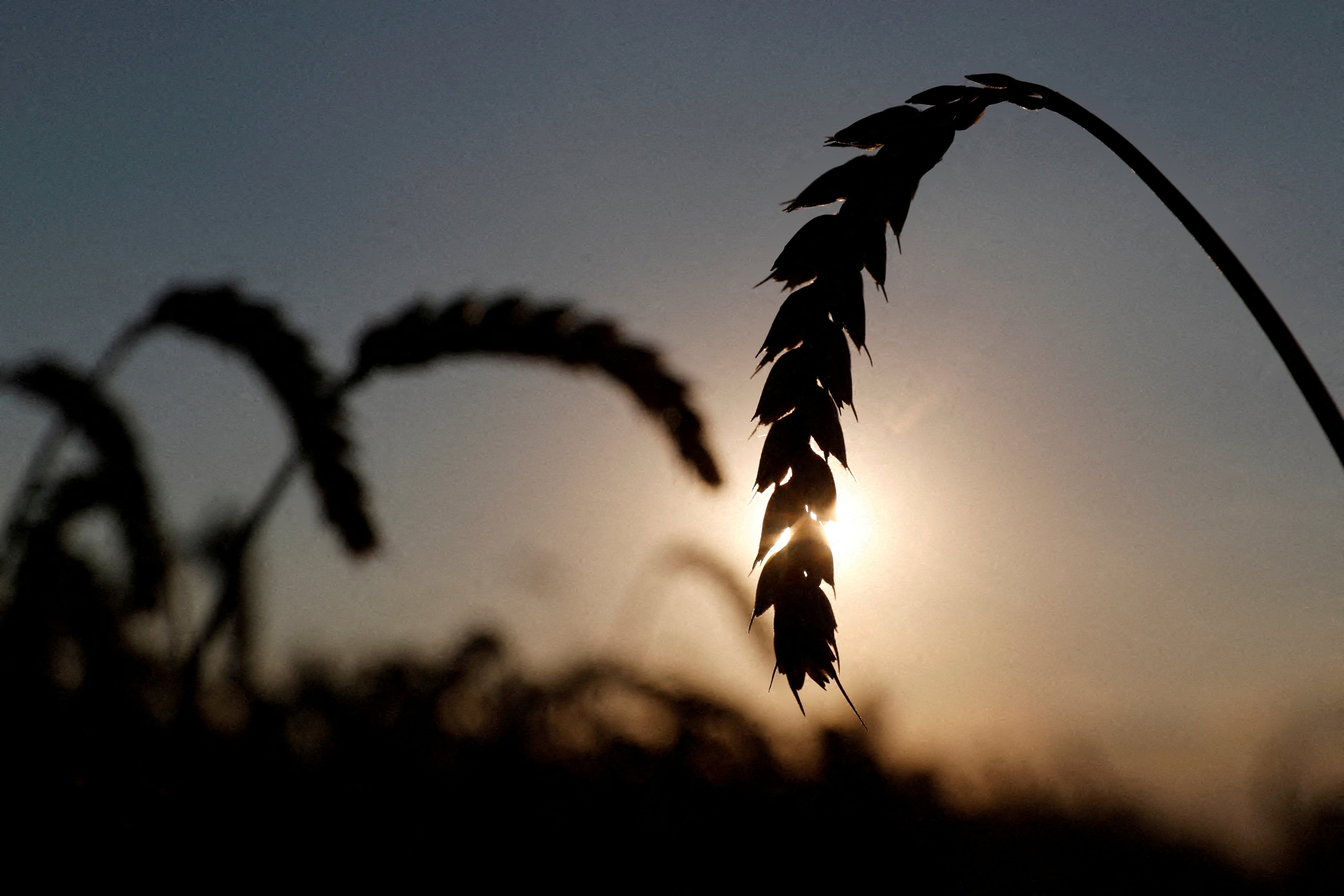Turkey and Russia fail to come up with plan to export Ukraine’s food as global crisis looms
Kyiv and Washington give cautious approval to talks that would allow exports of grain amid fears of woldwide starvation

Russia and Turkey failed to come up with a formula to move grain from Black Sea ports to the rest of the world following a closely watched meeting between senior officials in Ankara on Wednesday.
Russia FM Sergey Lavrov blamed Ukraine for the crisis, claiming its mining of ports at Mikolaev and Odesa was preventing shipments of staples such as grain and sunflower.
Turkish FM Mevult Cavusoglu suggested easing western sanctions might facilitate the food exports. Ukraine, which was not invited to the Ankara meeting, has said it does not trust Russia, fearing if it were to de-mine ports it would trigger attacks by President Vladmir Putin’s Black Sea forces.
“We see with great sadness that the destruction and the humanitarian tragedy is increasing with the war,” Mr Cavusoglu told reporters. “We believe that putting an end to this fight will be benefit this whole regions and all humanity.”
The meeting had inspired scepticism in Kyiv and in western capitals.
The United Nations has been in negotiations with Turkey and other countries to establish safe corridors through the Black Sea. Turkey controls the straits of Bosphorus and Dardanelles, the sole maritime entryways to Black Sea ports, where wheat and other foodstuffs yielded by Ukraine’s rich farmlands are transported to the rest of the world.
International organisations have warned of widespread hunger and famine owing to escalating food prices caused by Russia’s ongoing attack against Ukraine. Kyiv and western governments have accused Russia of weaponising the global food-supply crisis, a charge Moscow denies.
“Right now, Ukraine’s grain silos are full. At the same time, 44 million people around the world are marching towards starvation,” World Food Programme executive director David Beasley said last month. “We’re running out of time and the impact of inaction will be felt around the world for years to come.”

Mr Lavrov has said Moscow was prepared to allow shipments to leave but blamed Kyiv for refusing to demine poerts. “If the ports are cleansed of mines we will make sure we will not use our military powers and make sure those ships can depart safely and securely,” he said.
Mr Cavusoglu said western sanctions may be complicating efforts to move ships. He suggested the restrictions were hampering efforts to insure ships and obtain payment.
“If the whole world requires the products by Ukraine and the Russian Federation, I believe a way forward has to be opened,” he said.
Ukraine’s President Volodymyr Zelensky said on Monday that neither he nor Foreign Minister Dmytro Kuleba had been invited to the talks on Wednesday but that Kyiv officials had been consulting with both Turkey and the United Kingdom over the creation of Black Sea security corridors.
He acknowledged the need for a safe corridor to move up to 10 million metric tonnes of grain a month. Between 22 and 25 million metric tonnes of grain are already stuck in Odesa, a number that might rise to 75 million by autumn.
“What are we going to do?” said Mr Zelensky. “We won’t manage without ports.”
Mr Zelensky said the various parties were looking for a formula whereby ships could transit the Black Sea unmolested by Russian warships. The waters are also heavily mined, and Turkey has offered to use mine-clearing vessels to escort grain shipments.
“They are meeting with the Russians, so that Russia will give Turkey guarantees that nothing will happen to their ships,” he was quoted as saying by Ukrainian media.
United States officials have said they are in touch with both Ukrainian and Turkish counterparts. “We are supporting all diplomatic efforts that are carefully and closely coordinated with Ukraine – nothing about Ukraine without Ukraine – that have the potential to increase Ukrainian exports of food and fertiliser to the global marketplace,” US Department of State spokesman Ned Price told reporters on Monday.
Turkey’s president Recep Tayyip Erdogan is seeking foreign policy successes in the face of an emboldened opposition ahead of elections that could come next year or sooner.
Turkey also seeks Russian acquiescence to its possibly impending military operation against the Kurdish-run autonomous region in northeastern Syria. Turkey’s pro-government media have been celebrating Ankara’s role in helping get food to the rest of the world.

"The global food crisis caused by the Russia-Ukraine War will be solved by Turkey," said the daily newspaper Sabah.
Many also suspect Russia’s motives in engaging in the talks over Ukrainian grain without the participation of Kyiv officials. Experts say it remains doubtful Russia would allow Ukraine to fill its coffers with revenue from grains at a time when the two countries are at war.
Moscow has been accused of pilfering Ukrainian grain for its own profit after seizing control of Black Sea ports and looting food supplies. On Tuesday, Russian defence minister Sergey Shoigu suggested that foods could be exported from Ukrainian ports that Russian forces recently seized, such as Mariupol and Berdyansk, adding to suspicions about Moscow’s motives.
“In the last two weeks [the theft] has increased. They are working around the clock in Sebastopol,” Yoruk Isik, a researcher who monitors ship traffic through the Bosphorus, said. “Wheat, corn, barley scrap metal is getting shipped. Multiple ships are involved.”
Join our commenting forum
Join thought-provoking conversations, follow other Independent readers and see their replies
Comments
Bookmark popover
Removed from bookmarks